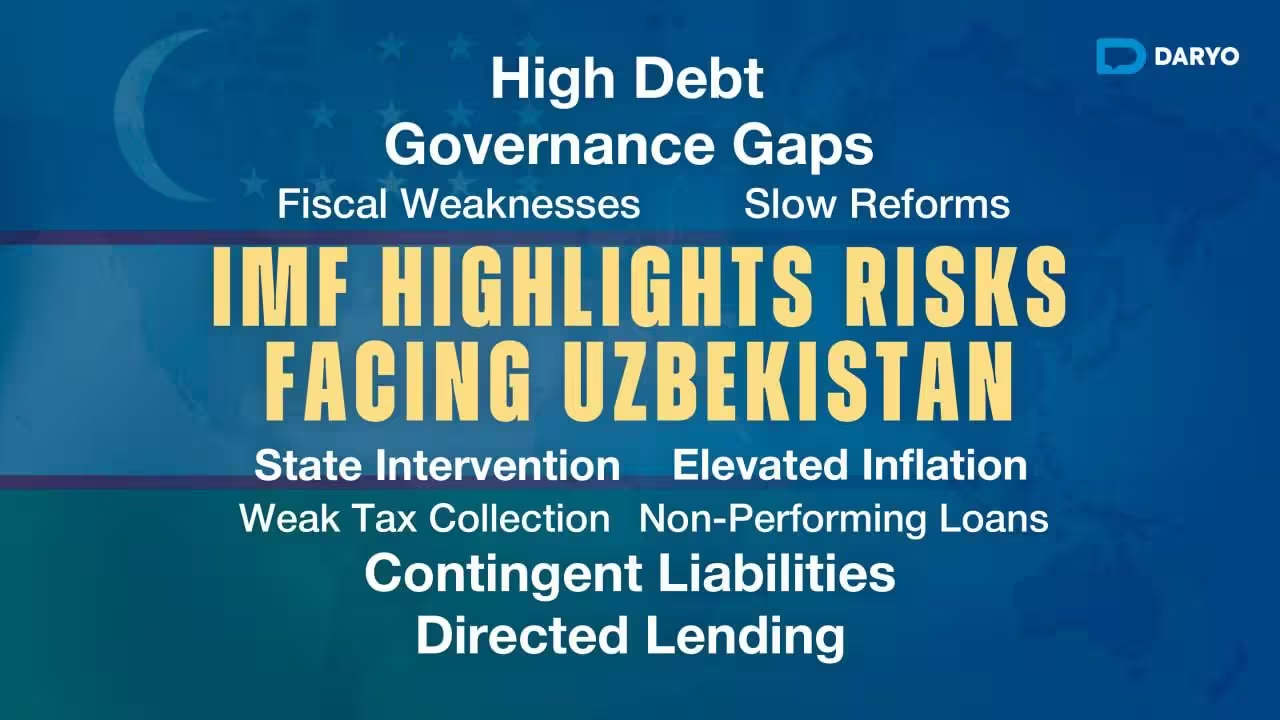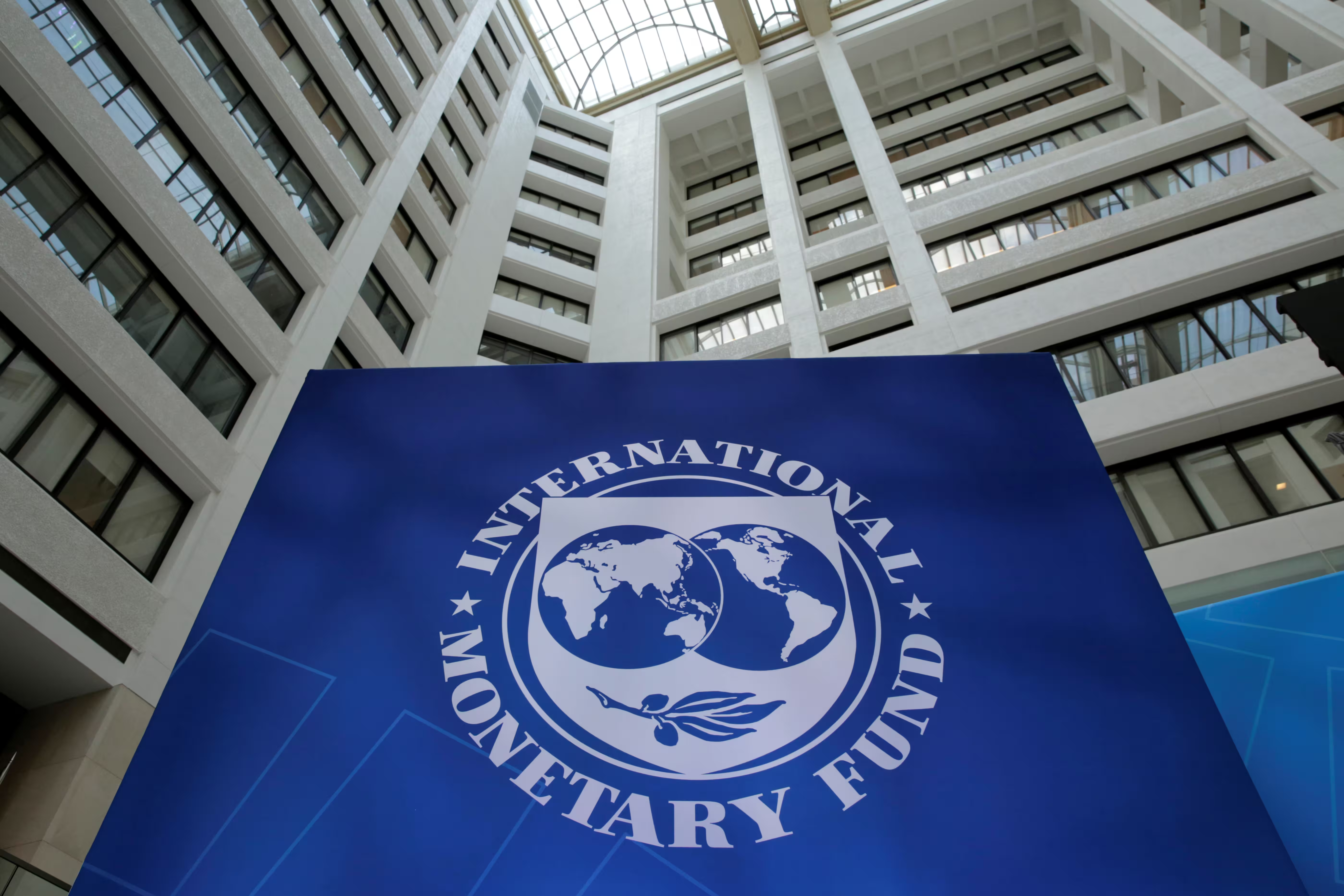Uzbekistan has been praised for sustaining strong economic growth, transforming its state-led system, and cutting poverty nearly in half over the past five years. But behind the momentum lie serious and growing risks. In its latest Article IV Consultation, the International Monetary Fund (IMF) commends Uzbekistan’s reform efforts—yet its assessment reads as both a roadmap and a warning: unless fiscal discipline tightens, inflation expectations stabilize, and the state’s oversized footprint is reduced, the country could find its gains eroding under mounting vulnerabilities.

At the heart of the warning is a familiar paradox for transitional economies—fast growth masking slow reform. Uzbekistan’s real GDP grew by 6.5% in 2024 and continued strong at 6.8% year-on-year in the first quarter of 2025. Poverty fell to 8.9%, and unemployment dropped to 5.5%. But this expansion, the IMF cautions, has been underwritten by factors that carry long-term risks: large-scale borrowing, inflationary pressures, and an underperforming financial sector still dominated by state-owned banks.
“The key challenge is to sustain reform momentum while avoiding a buildup of fiscal and financial vulnerabilities,” the IMF writes. “Without deeper structural change, strong growth today could give way to fragility tomorrow.”
Debt and Borrowing: A Balancing Act
Uzbekistan’s public and publicly guaranteed (PPG) debt rose to 32.6% of GDP in 2024 and is projected to reach 33.3% in 2025. External debt remains high at 56.2% of GDP. While these numbers are not alarming in isolation, the IMF highlights a critical concern: the government has repeatedly exceeded external borrowing ceilings, with state-owned enterprises (SOEs) adding unplanned fiscal burdens.
PPP commitments also ballooned to 27% of GDP as of end-2024. While these projects—often in energy and infrastructure—are key to development, they carry contingent liabilities that can backfire if poorly managed. The IMF calls on the government to impose strict caps, scrutinize cost assumptions, and integrate all PPP spending into the national budget framework.
“Repeatedly relaxing borrowing limits undermines budget credibility and invites inflationary pressure,” warns the report. “Debt management must become more transparent and rules-based.”

Inflation: A Persistent Undercurrent
Inflation has remained stubbornly high, rising to 10.6% in May 2024 due to energy tariff hikes. Despite the Central Bank of Uzbekistan (CBU) raising its policy rate to 14% in March 2025, core inflation stood at 8.2% in April. Inflation expectations among households and businesses remain elevated.
The IMF notes that tight monetary policy will be required well into 2027 to bring inflation back to the 5% target. But the report also implies that monetary tightening alone won’t be enough—fiscal support, such as curbing spending when gold revenues rise, is also necessary.
The CBU has been slow to let the exchange rate act as a shock absorber, limiting currency flexibility and complicating inflation control. The IMF urges wider exchange rate bands and a clearer definition of when and how the central bank intervenes in currency markets.
Financial Sector: A Quiet Risk Zone
Beneath the surface, Uzbekistan’s financial system is showing signs of strain. While official data puts non-performing loans (NPLs) at 4.3% of total loans, the IMF estimates that number could double if banks applied international standards. Sectors like construction and agriculture have particularly high exposure.
Moreover, preferential lending by state-owned commercial banks (SOCBs) remains a major drag. These banks—which still account for 65% of total assets—offer loans at below-market rates with state backing, compromising profitability, crowding out private credit, and creating recurring recapitalization costs (as much as 2% of GDP annually since 2017).

Microcredit is surging—with household microloans rising 84% and corporate microcredits up 116% year-on-year in early 2025—but oversight is weak. The IMF warns that loose credit checks and the explosion of short-term borrowing could generate a financial stability shock if economic conditions tighten.
“Reported indicators suggest soundness, but systemic risks may be underestimated,” the IMF notes. “Stronger regulation and risk-based supervision are urgently needed.”
Structural Reforms: Half-Finished Work
Much of Uzbekistan’s economic risk stems from unfinished reforms. Price and trade liberalization are incomplete, SOEs still dominate key sectors, and privatization efforts have slowed. Despite steps to join the WTO—23 of 33 bilateral negotiations are done—the government retains considerable control over market activity.
Tax policy is another weak link. The tax-to-GDP ratio has declined by 2 percentage points since 2020, and the 2025 budget includes new exemptions. Without reversing this erosion, the state will struggle to fund essential services, let alone absorb future shocks.
Labor market mismatches, high youth unemployment, and limited private-sector competition all constrain long-term productivity. Meanwhile, public investment and climate adaptation—though prioritized under the government’s 2025 green economy campaign—remain vulnerable to financing gaps and institutional bottlenecks.

Governance and Transparency: The Soft Underbelly
The IMF acknowledges that Uzbekistan has made strides in governance—such as adopting a Conflict-of-Interest Law and improving procurement transparency—but emphasizes that the rule of law, accountability, and public-sector efficiency must improve. The Whistleblower Protection and Asset Declaration laws are still pending, and fiscal data gaps remain.
The IMF also flags weaknesses in public-private partnership oversight, noting that much of the risk from PPPs is opaque and off-budget. It calls for publishing Government Financial Statistics (GFS)-compliant data and the debt management strategy—steps crucial for investor confidence and sustainable borrowing.
Uzbekistan’s economic transformation is real—but so are its risks. The IMF concludes its report with a warning that resonates across developing economies trying to leap from reform to resilience:
“Strong growth is not enough. Reducing the state’s role in the economy, ensuring fiscal transparency, and empowering the private sector are essential to avoid sliding into a debt-driven, inflation-prone path.”
The coming year will be critical. As global trade uncertainty deepens and financing tightens, Uzbekistan must decide whether it is willing to trade short-term comfort for long-term security. The foundation is there—but the scaffolding must be reinforced before external shocks expose the cracks.
Follow Daryo's official Instagram and Twitter pages to keep current on world news.
Comments (0)